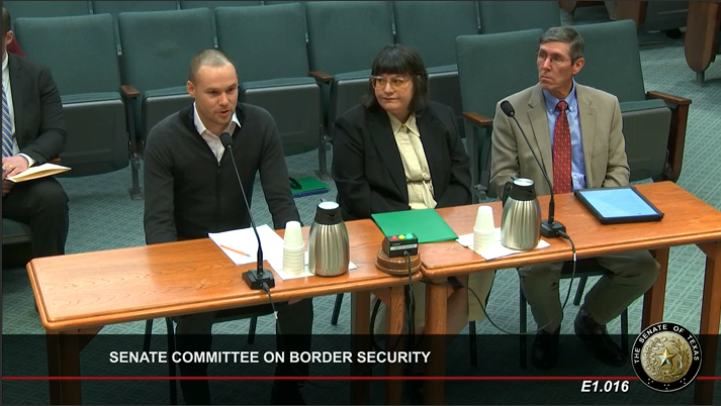Local electeds have a critical perspective that state legislators must hear. That’s why LPTX members representing localities across Texas gathered together in Austin last week to tell state legislators how harmful preemption would impact the communities they represent.
LPTX members testified at hearings, met with their representatives, and strategized together to achieve the best path forward for everyday Texans. Each and every step of the way, members are coordinating with and working alongside community partners, including the ACLU of Texas, Texas Appleseed, Texas Harm Reduction Alliance, Texas Organizing Project, Texas AFL-CIO, Every Texan, Workers Defense Project, the Laredo Immigrant Alliance, Texas Civil Rights Project and so many more.
The Texas State Legislature has introduced a slew of harmful bills so far this legislative session, many of which directly threaten local democracy. Members brought their communities’ perspectives to light by testifying at hearings throughout the day last Thursday, March 30.
City of El Paso Mayor Pro Tem Alexsandra Annello and City of El Paso Council Member Chris Canales testified against SB 1484 at the Senate Border Security Committee. SB 1484 would create a local law enforcement training program to further criminalize people seeking asylum along the Texas-Mexico border. Annello shared how this bill would impact her border community.

“I represent neighborhoods along the border. My constituents call me and share the trauma they experience with high speed chases and with DPS in their neighborhoods,” Annello said. “This will only continue to increase fear in our communities.”
Annello and Canales drove home that care – not criminalization – makes our communities safer and stronger.
El Paso County Commissioner David Stout testified before the House Elections Committee against HB 2020, which would allow the Texas secretary of state to repeal local election administrators. In practice, this would shift the secretary of state office’s role from working with election workers as a guide and resource to investigating them.
“At the end of the day, the state should not be vested with the power to fire or suspend local county employees,” Stout said. “This bill does just that by targeting elections administrators.”
Texas already has some of the most restrictive voter laws. HB 2020 would just serve to further damage the state’s election systems.
Dallas City Councilmember Adam Bazaldua and the City of El Paso Council Member Chris Canales testified before the House Environmental Regulations Committee against HB 2211, which would strip localities of the ability to regulate greenhouse gas emissions.
“With the threat of the climate crisis growing worse, we need every agency at level to help reduce greenhouse gas emissions. This bill would strip localities’ abilities to do that,” Bazaldua said. “If the state will not act on this, the least we can do is let cities take steps to reduce emissions ourselves.”
Canales highlighted the vastly different concerns localities across Texas face when it comes to greenhouse gas emissions to make the case against a one-size-fits-all state regulation.
“El Paso and other border communities in Texas have a very unique set of concerns with regards to emissions that aren’t necessarily captured in state law,” Canales said. “Texas is very large and localities with vastly different biomes face completely different needs.”
Local governments are critical tools for addressing our climate crisis. Texas is home to some of the most incredible natural resources and scenic beauty in the country. We should be empowering everyone – local governments included – to help us conserve these resources.
Throughout their time together in Austin, members and partners alike drove home this overarching message: Local elected officials are best placed to meet local needs. They know their constituents personally. They understand – and share – their constituents’ concerns and values. That’s why it’s critical that local governments retain the flexibility to address their communities’ unique local needs.